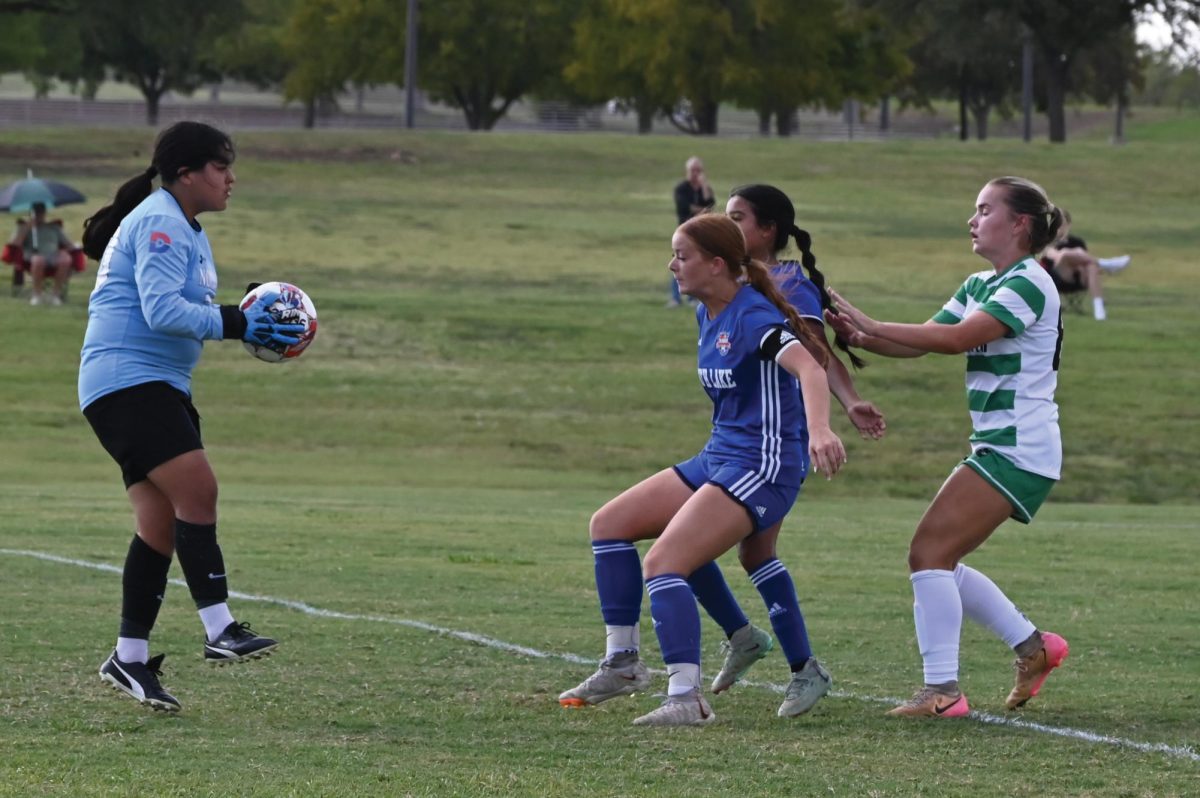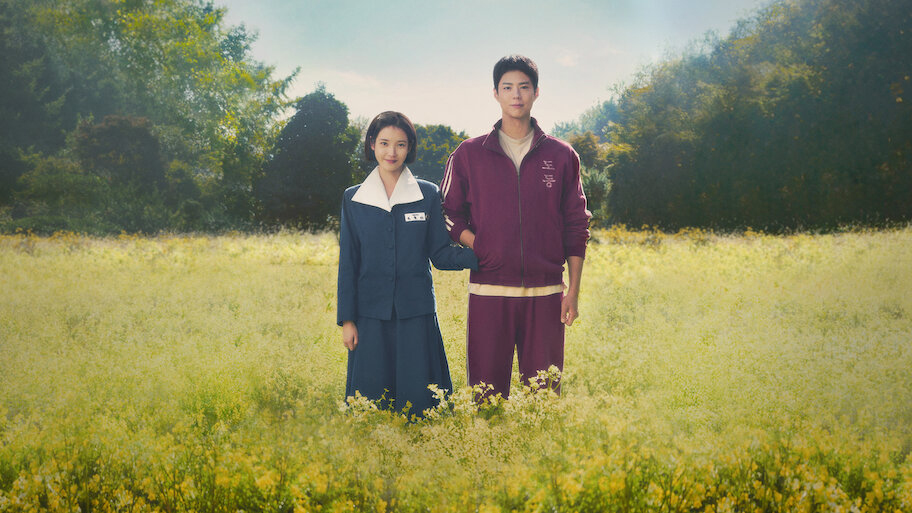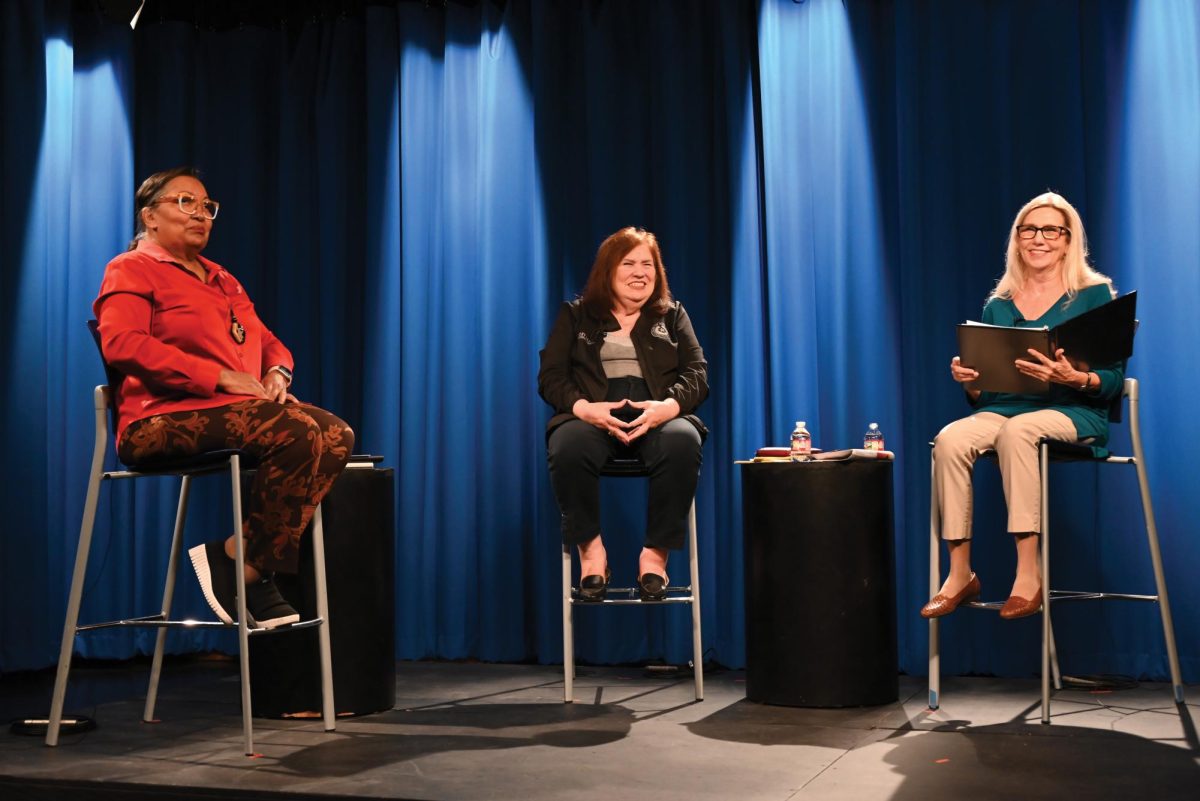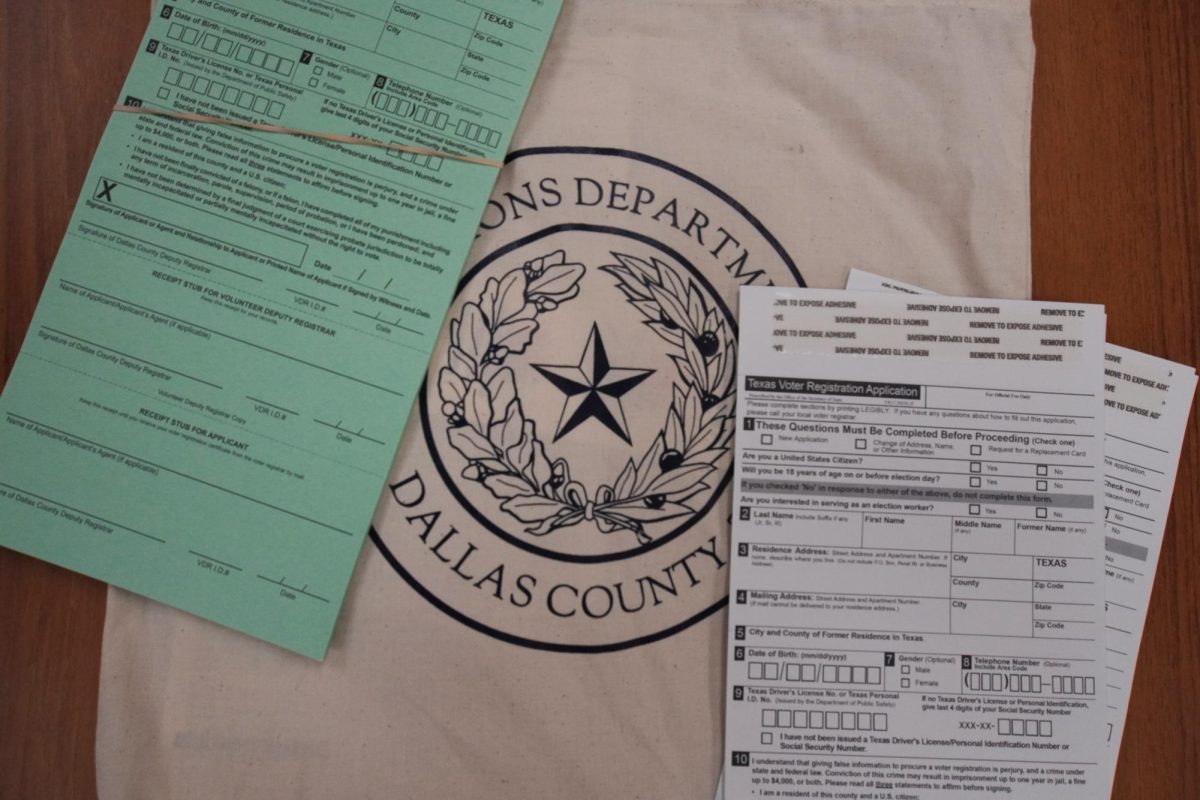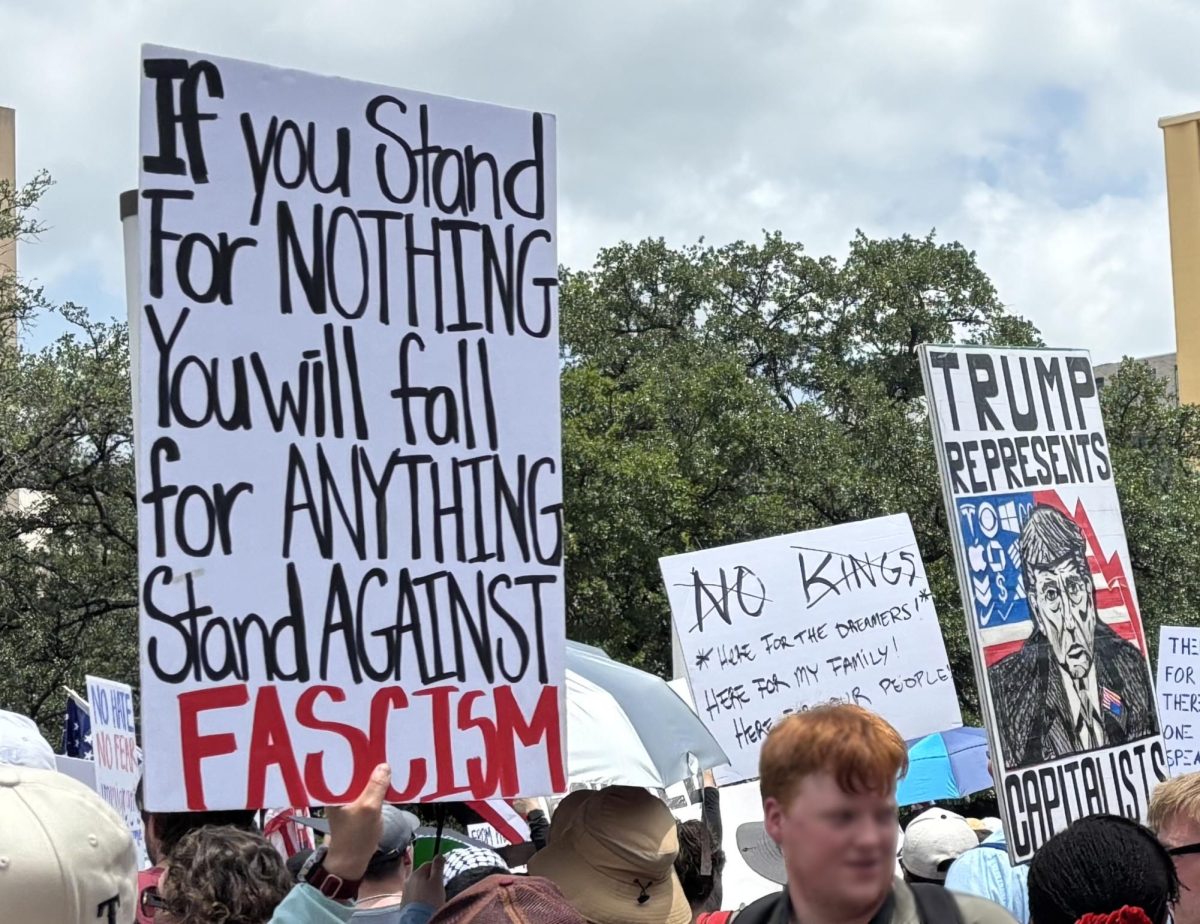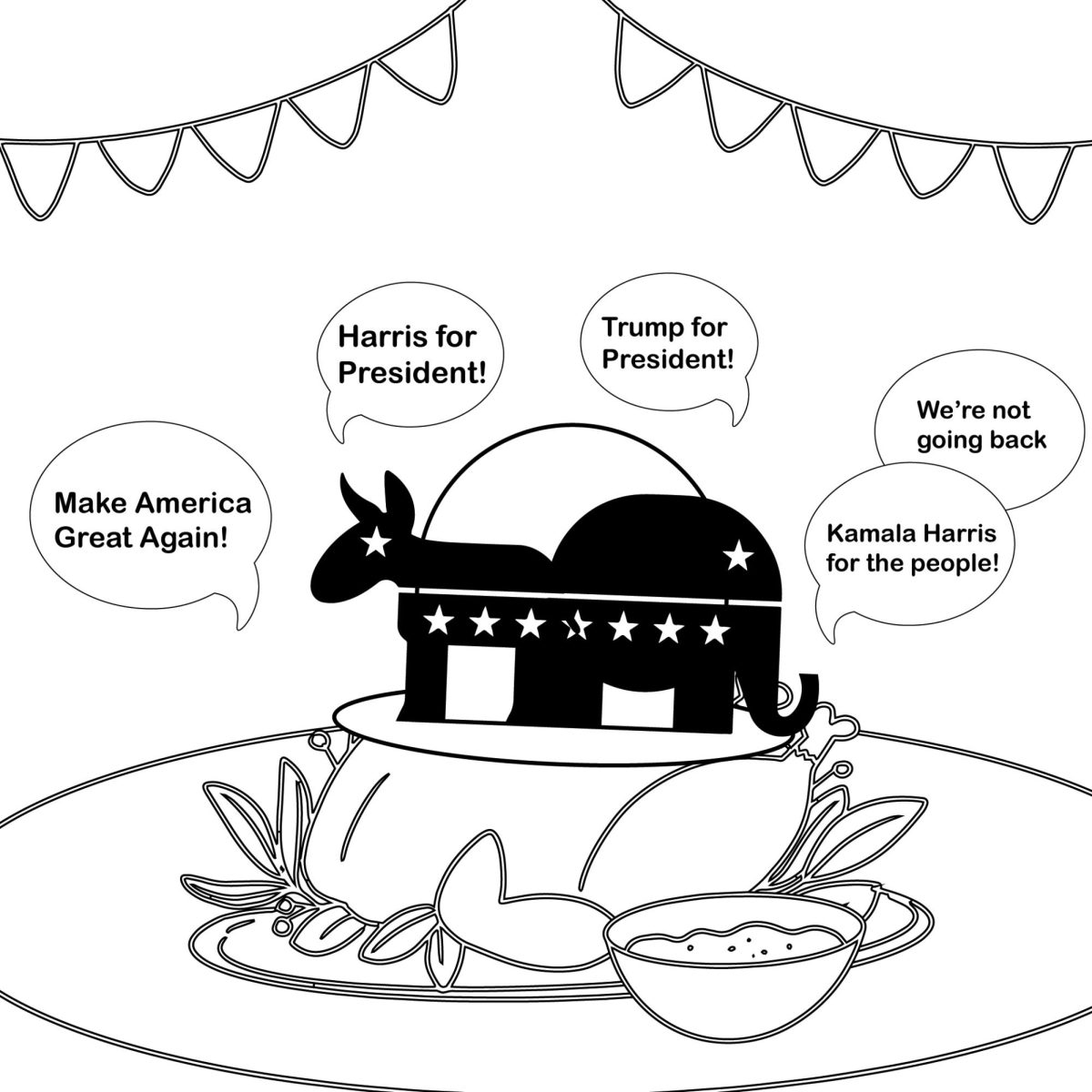The North Lake Video Technology department and the New-Register hosted the League of Women Voters of Irving for a Constitutional Amendment Forum in the television studio, Oct. 7. The forum, which was livestreamed, previewed nine of the 17 proposed amendments to the Texas constitution. Those propositions will be on the ballot for voters to decide Nov. 4. If approved by voters, they will become amendments to the Texas Constitution.
Cathy Whiteman, anchor/producer with Irving Community Television Network (ICTN) served as the forum’s moderator. Alice Owen, president of the League of Women Voters of Irving, served as the voice of the voter and the State Rep. Terry Meza (D-Irving), representing Texas’ 105th district, gave the pros and cons of the proposed amendments.
“Events like this help people to become educated, and a lot of people aren’t engaged until the very last minute too in the process, so we are trying to encourage people make them realize that it’s important that they do vote because that is their voice,” said Ernestine Chipman, with the LWV, Irving service committee.
The panel covered proposed amendments 2, 3, 4, 6, 12, 15, 17 and 18. They were covered in order, with the exception of Proposition #4, which covers funding of the water infrastructure for Texas. That was an amendment all sides seemingly could agree upon.
Proposition #2 covers permanently prohibiting taxing capital gains, such as investments, real estate, valuable items and certain personal property. Texas does not currently have a tax on capital gains. Meza pointed out that this would be creating a law to ban a tax that doesn’t exist. She added that this could remove a possible revenue source in the future. Owens noted that the ban would provide certainty for businesses that they will not have to worry about such a tax in the future.
Proposition #3 covered the denial of bail for certain offenses. The issue involved a case in Harris County where someone accused of a violent offense was released on bail and then recommitted the same offense. Currently, denial of bail requires a separate trial. The accused must also be able to pay bail. The point was made that judges can set a high bail so the payment would be difficult to meet. The counter point was made that this would mean the rich go free and the poor stay in jail, resulting in no change to the current situation.
Proposition #6 would preemptively prohibit taxes on certain securities, primarily stocks and bonds. Taxing them could reduce the profits and make it harder for people to save money on these assets. This could also increase costs and discourage trading, which could hurt the Texas economy. Prohibiting this tax could attract businesses to Texas and create jobs, however, since we don’t currently have a tax on securities, banning it won’t change anything and would probably have no effect.
Proposition #8 prohibits “death taxes” or taxes on estate gifts or estate transfers. Texas does not currently have these taxes. The amendment avoids the possibility of double taxation, as the estate was taxed while the deceased person was living. It could protect family businesses in the case where the living family may struggle to pay the taxes without liquidating their businesses. It also eliminates the opportunity to consider such a tax in the future without amending the Constitution.
Proposition #12 expands and restructures the Texas State Commission on Judicial Conduct (SCJC). It would increase membership to 13 and enhance ability to issue public sanctions against judges, introduces new powers including authority to suspend judges upon indictment for certain crimes. These members are not elected officials. If approved, the governor would increase appointments from five to seven. The Texas Bar Association would lose their two appointments and the Texas Supreme Court would appoint the remaining six members.
Proposition #15 covers adding a “parental rights” amendment to the constitution. This would give parents rights over their children 17 or under. Currently, the rights of children already belong to the parents. A few points of caution were discussed, including school nurses not being able to treat children without express permission from parents, as well as the complications that could be caused by divorce and parents without custody claiming rights. It could also be used to cover up child abuse caused by parents.
Proposition #16 clarifies that only citizens can vote in Texas elections. Currently, it is against federal law for non-citizens to vote in state of national elections. The point was brought up that this amendment could create fear mongering, sinc it is a non-issue.
Proposition #17 involves property tax exemption for border security infrastructure. This allows the Texas Legislature to exempt any increase in value to land in Texas border counties that results from the addition of border security infrastructure. There are currently no tax exemptions available to people who have this infrastructure built on their property. Those opposed say it narrows tax burden to others, reduces revenue and encourages the increased militarization of our border.
Covered at the end of the event, Proposition #4 deals with funding for the Texas Water Fund. Texas is running out of water, with some saying we will be short by 2030. This amendment proposes the creation of the Texas Water Fund, and allocation $20 million over the next 20 years to fund improvements to the water infrastructure. The water caucus was established two sessions ago. The bill will help us build pipelines and water reservoirs so that we can have water into the future.
“Whenever there is an amendment election coming up, I tell people ‘Do your homework’,” said Robert Sheaks, forum attendee and regularly serving election judge. “These constitutional elections are very, very slow, because people don’t like them. One reason they don’t like them is because they can’t understand the text that they read on the ballot, its’s very opaque, but they can be deciphered, especially by subject matter experts.”
For more information about the proposed constitutional amendments, visit the League of Women Voters Election Guide at https://lwvtexas.org. Early voting gets underway Oct. 20 – 31. Election Day is Nov. 4.


